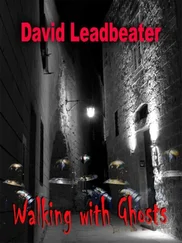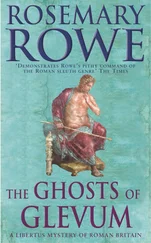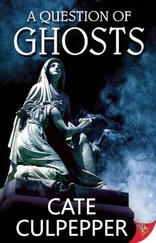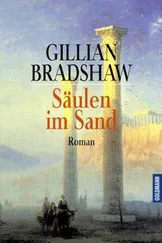Gillian Bradshaw - Island of Ghosts
Здесь есть возможность читать онлайн «Gillian Bradshaw - Island of Ghosts» весь текст электронной книги совершенно бесплатно (целиком полную версию без сокращений). В некоторых случаях можно слушать аудио, скачать через торрент в формате fb2 и присутствует краткое содержание. Жанр: Исторические приключения, на английском языке. Описание произведения, (предисловие) а так же отзывы посетителей доступны на портале библиотеки ЛибКат.
- Название:Island of Ghosts
- Автор:
- Жанр:
- Год:неизвестен
- ISBN:нет данных
- Рейтинг книги:3 / 5. Голосов: 1
-
Избранное:Добавить в избранное
- Отзывы:
-
Ваша оценка:
- 60
- 1
- 2
- 3
- 4
- 5
Island of Ghosts: краткое содержание, описание и аннотация
Предлагаем к чтению аннотацию, описание, краткое содержание или предисловие (зависит от того, что написал сам автор книги «Island of Ghosts»). Если вы не нашли необходимую информацию о книге — напишите в комментариях, мы постараемся отыскать её.
Island of Ghosts — читать онлайн бесплатно полную книгу (весь текст) целиком
Ниже представлен текст книги, разбитый по страницам. Система сохранения места последней прочитанной страницы, позволяет с удобством читать онлайн бесплатно книгу «Island of Ghosts», без необходимости каждый раз заново искать на чём Вы остановились. Поставьте закладку, и сможете в любой момент перейти на страницу, на которой закончили чтение.
Интервал:
Закладка:
“Welcome back!” he exclaimed, putting the book down, and he came over to shake hands.
Facilis ignored the outstretched hand, and Comittus took a step back, the smile fading from his face. He looked at Longus in alarm: Longus shook his head sadly.
“I have some questions to ask you, Lucius Javolenus,” said Facilis. “I think we’d better sit down.”
When Facilis charged him with being a druid, Comittus admitted it, and wept. He turned to me and sobbed, “I’m sorry, Ariantes!” But it soon emerged that he had not actually done anything he needed to be sorry for. He was a druid because he wanted to worship his people’s gods in the way they had always been worshipped, and he was, as Longus had said, still very junior, studying the sacred teachings of his religion at a very basic level and assisting another priest. He’d known nothing about the killing in the grove near Corstopitum until the news had reached the whole fort after the Saturnalia-and then, again as Longus had said, he’d got into “a stew” about the whole business. The killing, and the fact that it had been done to injure me, his colleague and a man he knew had never committed any sin against druidism, had shaken his faith in everything he’d been taught. And he had instantly associated it with the Pictish invasion and seen that his friends were guilty of rebellion against Rome. Roman and British, a legionary tribune and a student of druidism, a nobleman of the Coritani and a member of the equestrian order-all his life he had stood with one foot on each side of a gaping crevice. Now it had torn apart beneath him and left him plunged in confusion, racked by contradictory loyalties. He almost welcomed Facilis’ accusations, though he assumed that he was about to be arrested and carted off to disgrace, ruin, and possible death. Facilis bullied him cruelly, trying to find out more about how many druids there were in the region, how they were organized, and who was behind the murder. But Comittus knew little more than the Christians in Eburacum had, and was reluctant-honorably, in my opinion-to name any names. He did not mention Aurelia Bodica. He admitted that “some friends” had asked him about me, and that he’d answered them freely, but only until the raid. Then he’d become suspicious. After the curse, he’d refused to see those friends at all, though one of them had sent him a message asking for a meeting. He said passionately that druids weren’t all like that, that some druids were opposing the extreme sect, that there was going to be a convocation to consider whether the human sacrifice had been blasphemous…
“Consider?” demanded Facilis. “Your gods are the sort, then, who leave such matters open to question?”
Comittus shook his head, lower lip trembling like a child’s. “We’ve been persecuted for a long time, Marcus,” he protested wretchedly. “When people have hurt you, it’s natural to hate them. I haven’t suffered myself, so I can’t condemn… that is, I don’t say it’s right, but… but can’t you understand?”
I was sure Facilis understood perfectly, but he showed no sign of it. He cursed Comittus for a traitor and a hypocrite. Then he whipped out the writing leaf with the list of suspected ringleaders. The evidence of how much we knew shook Comittus so badly I thought for a moment he would faint, but still he did not want to speak, though he eventually confirmed two of the names in a voice thick with distress. One name was Cunedda’s.
Facilis pounced. “The archdruid,” he said contemptuously. “The Brigantian poisoner who dreams of dragons fighting, the man the person at the head of all this chose as chief adviser. Yes, of course we know who the leader of this conspiracy is! We know where that person is; where is this Cunedda?”
Comittus began to cry again.
“You know,” said Facilis mercilessly. “He’s one of the friends who asked you questions about Ariantes, isn’t he? And he’s the one who sent you a message after the curse, trying to arrange a meeting, isn’t he?”
Comittus nodded.
“You know what he wanted then, don’t you? His curse wasn’t working, so he wanted you to help him murder the prince. Just think of that! If you’d gone along with that, you could have painted this fort with blood. Gods and goddesses! He’s a murderer, Lucius, and by your own reckoning he’s a blasphemer as well. Why are you protecting him? You say you think he’s wrong. Who’s going to believe that when you try so hard to shield him? You’re in trouble anyway: why should you make your own sufferings worse to protect him? Come on! If he proposed a meeting, he must have told you where you could reach him. Where was it?”
Choking, almost unintelligible with grief, Comittus named a place, then covered his face and doubled over sobbing.
It was enough, and I finally put a stop to his misery. “Comittus,” I said, “the authorities do not know your name and we will not betray it to them.”
Comittus uncovered his face and stared, first at me, then at Facilis.
Facilis gave me a look of intense annoyance, then sighed and nodded. “I’ve been given the responsibility for investigating that sacrificial murder,” he said, “and the only people I want punished for it are the guilty ones. You and these convocation-calling friends of yours weren’t there and I’m not going to bother you.”
At this Comittus wept again and thanked us, clutching all our hands. We left him in his house to calm down and went across to headquarters to discuss what to do next.
Eukairios was waiting in the commander’s office, his three sheets of parchment sitting on the desk, rolled neatly and tied with a cord. “The mysterious document!” observed Longus, but the usual facetious words were spoken in a voice uncharacteristically tired and unhappy. “I hope it’s not another nasty surprise, Ariantes.”
I shook my head. “It’s Eukairios’ manumission. How many witnesses do we have here at headquarters?”
Facilis gave a bark of laughter. “I should have guessed it. Eukairios could have invested in a red hat months ago.”
“A red hat?” I asked, puzzled.
“A freedman’s hat,” explained Longus. “He puts it on and everyone knows to congratulate him. A red hat with a peak. Like yours, but a little floppier and without the earflaps.”
“Like mine?” I demanded, horrified: had I been wearing a hat that marked me as a freed slave?
Longus and Facilis both began laughing. “Oh gods, Ariantes, didn’t you know?” said Longus, forgetting his unhappiness. “No, I suppose not! Nobody dared say anything.”
I took my hat off. They both laughed again.
“Ariantes, nobody in their right mind ever mistook you for a freedman,” Longus told me. “Nobody. The thought of you as a slave-it’s like that play where the god Apollo gets made the slave of some Thracian as a penance, and his master runs around fetching things for him. And that hat isn’t really the right shape-it’s just that it’s red.”
I shook my head. I would have to buy a hat of some other color. “Do you need a red hat?” I asked Eukairios.
He began laughing as well, but stopped himself. “Yes, my lord. I hadn’t bought one, in case it brought me bad luck.”
I handed him mine. “Let us sign the document, and then you can put it on.”
He unrolled the document and read it out, and I signed it, in triplicate (“You make your mark there, my lord, and I write ‘Unlettered’ here ”), and after me Facilis, Longus, four Asturians who were working in the headquarters as clerical staff, and Leimanos, who’d come down to see if I’d finished with Comittus. Then Eukairios put on the hat, looking pink as a girl who’s just been kissed, and everyone shook his hand and congratulated him. When it was my turn to shake his hand, he clutched my hand in both of his-then dropped it, flung his arms around me, and hugged me like a long-lost brother. “Thank you,” he shouted, “Patron!” He was shaking with joy.
Читать дальшеИнтервал:
Закладка:
Похожие книги на «Island of Ghosts»
Представляем Вашему вниманию похожие книги на «Island of Ghosts» списком для выбора. Мы отобрали схожую по названию и смыслу литературу в надежде предоставить читателям больше вариантов отыскать новые, интересные, ещё непрочитанные произведения.
Обсуждение, отзывы о книге «Island of Ghosts» и просто собственные мнения читателей. Оставьте ваши комментарии, напишите, что Вы думаете о произведении, его смысле или главных героях. Укажите что конкретно понравилось, а что нет, и почему Вы так считаете.












